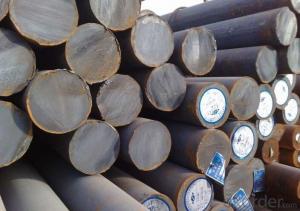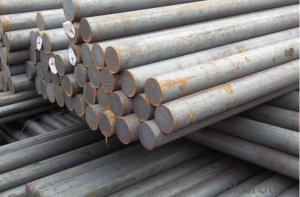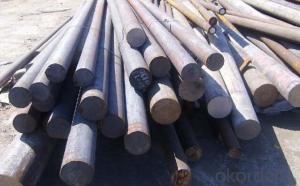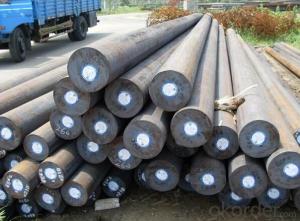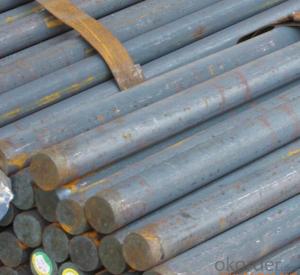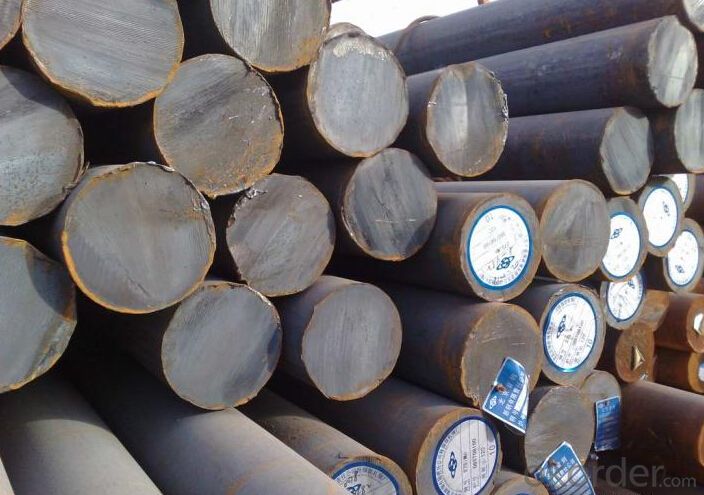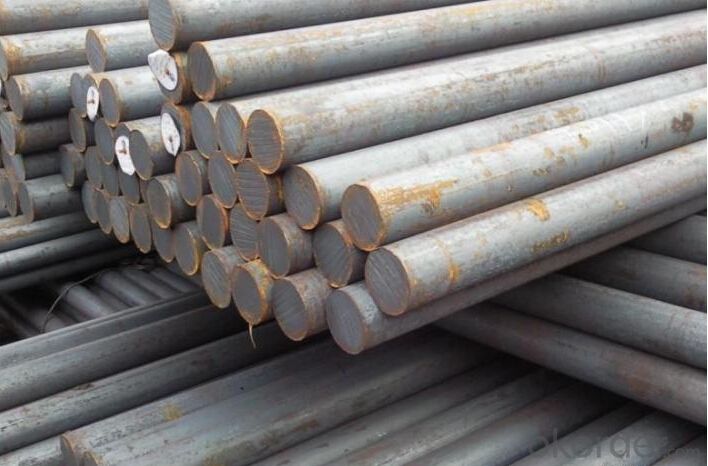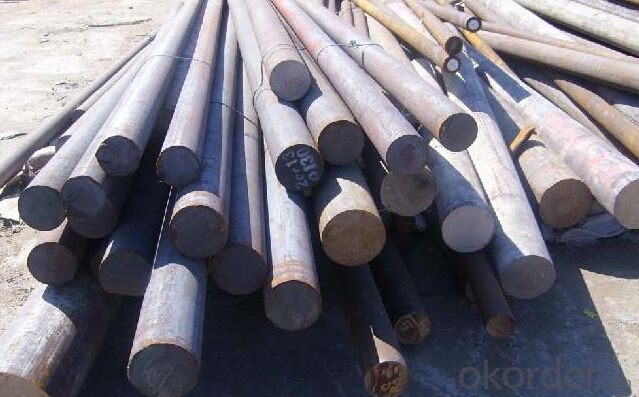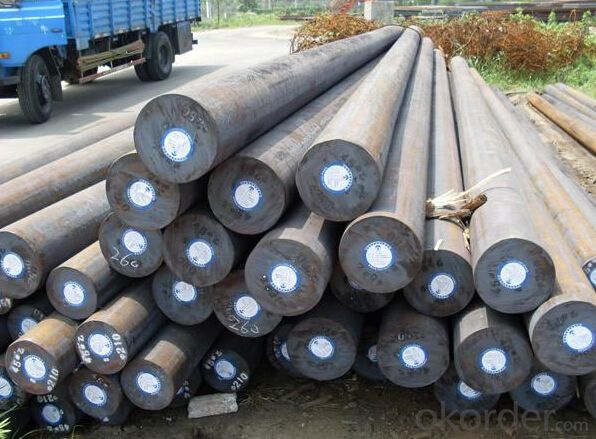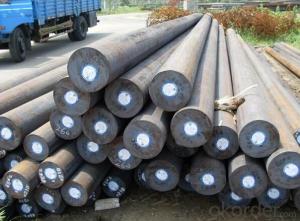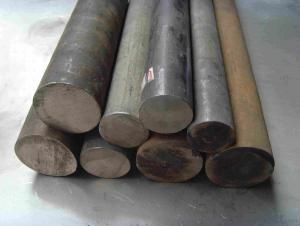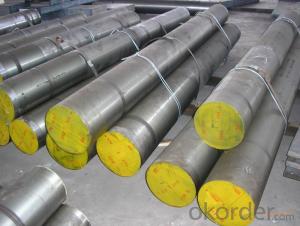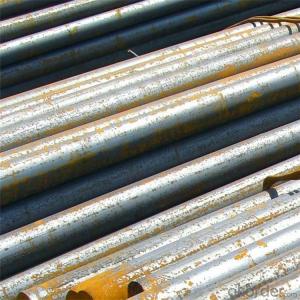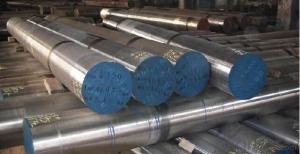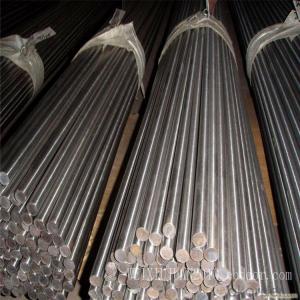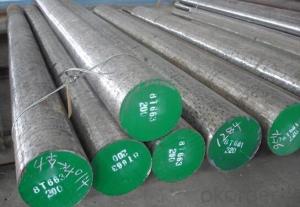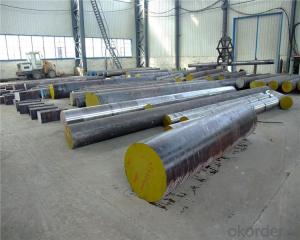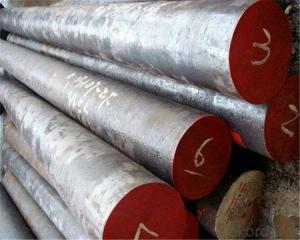EN19/30CrMo A30302 /4130/SCM430/25CrMo4 1.7218 alloy structural steel round bar
- Loading Port:
- Tianjin
- Payment Terms:
- TT or LC
- Min Order Qty:
- 3 m.t.
- Supply Capability:
- 10000 m.t./month
OKorder Service Pledge
OKorder Financial Service
You Might Also Like
Specification
EN19/30CrMo(A30302)/4130/SCM430/25CrMo4(1.7218) alloy structural steel round bar
Name | Steel Round Bar |
Shape | Round Bar/Square Bar/Flat Bar/Plate/Wire |
Standard | GB/ASTM/SAE/AISI/DIN/JIS/EN/BS |
Surface Treatment: | Black/Peeling/Polished/Machined |
Delivery Condition: | Hot Rolled or Forged/Peeled or Black Surface |
Test | SGS/UT 100% Elements Testing |
Certificate: | ISO/Mill Certificate |
Service: | 24 hours online service / |
more than 20 years trading and manufacture | |
Quality Assurance: | the third party inspection, such as SGS, BV, TUV…etc. is acceptable |
Packaging Details: | seaworthy packaging or as per customer's packing instruction |
Chemical Composition
C | Si | Mn | Cr | Mo | P | S | Cu | Ni |
0.26-0.34 | 0.17-0.37 | 0.40-0.70 | 0.80-1.10 | 0.15-0.25 | ≤ 0.035 | ≤0.035 | ≤0.30 | ≤0.30 |
Mechanical Properties
Tensile strength | Yield strength | Elongation rate | Contractibility rate | Hardness | Impact energy |
≥930MPa | ≥785MPa | ≥12% | ≥50% | ≤229 | ≥63J |
Packaging & Delivery
Packaging Detail | Sea worthy packing /as per customer's packing instruction |
Delivery Detail | 15 ~ 40 days after receiving the deposit |
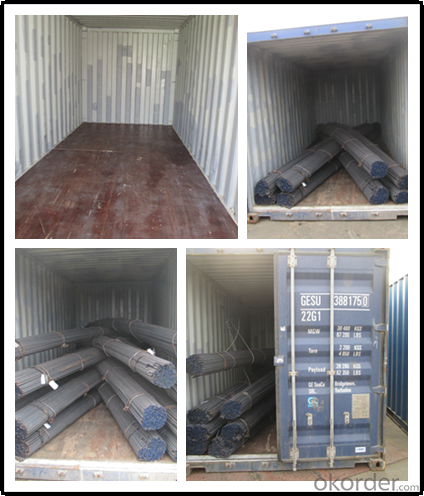
Product Show
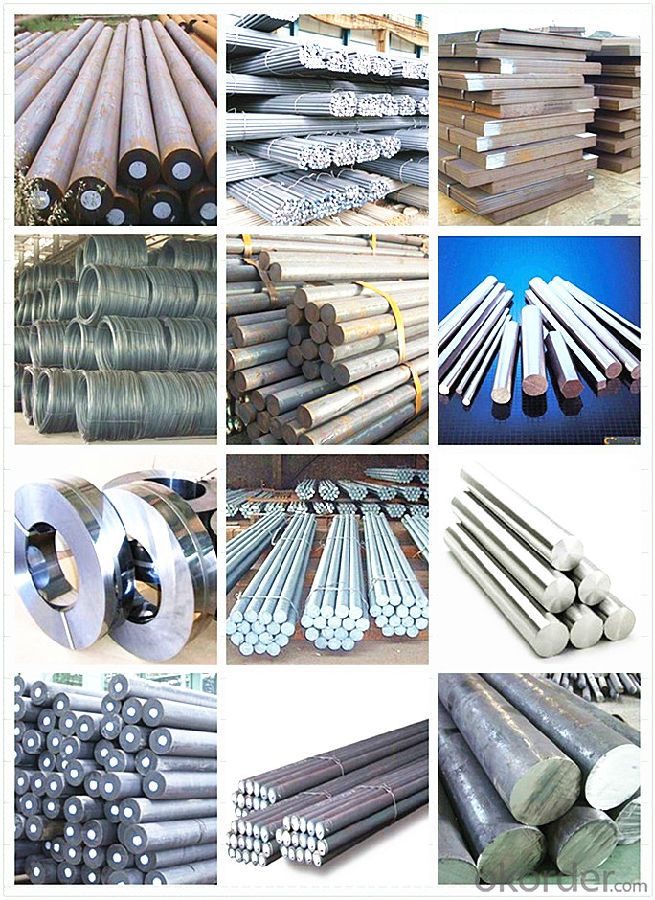
Workshop
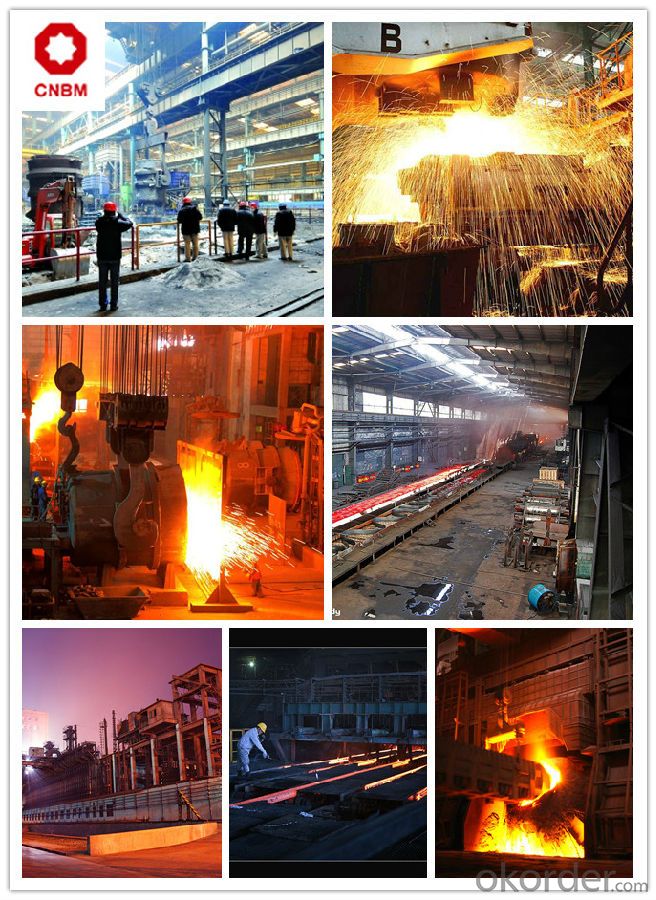
FAQ
Are you a trading company or manufacturer? | Manufacturer |
What’s the MOQ? | 3 metric ton |
What’s your delivery time? | 15-35 days after downpayment received |
Do you Accept OEM service? | Yes |
what’s your delivery terms? | FOB/CFR/CIF |
What's the Payment Terms? | 30% as deposit,70% before shipment by T/T |
Western Union acceptable for small amount. | |
L/C acceptable for large amount. | |
Scrow ,Paybal,Alipay are also ok | |
Why choose us? | Chose happens because of quality, then price, We can give you both. |
Additionally, we can also offer professional products inquiry, products knowledge train (for agents), smooth goods delivery, excellent customer solution proposals. | |
What's your available port of Shipment? | Main Port, China |
What’s your featured services? | Our service formula: good quality+ good price+ good service=customer's trust |
Where are your Market? | Covering more than 160 countries in the world |
Special steel and there is no uniform definition of the concept of special steel is generally considered to have a special chemical composition (alloying), using a special production process, with a special organization and performance to meet the special needs of the steel type. Compared with ordinary steel, special steel has a higher strength and toughness, physical properties, chemical properties, biocompatibility and process performance.
China and Japan, the EU definition of special steel closer, into the special steel quality carbon steel, alloy steel, high alloy steel (alloying elements greater than 10%) three categories, including steel and high-alloy special steel production accounted for 70%. The main advantages of special steel carbon structural steel, carbon tool steel, carbon spring steel, alloy spring steel, alloy steel, ball bearing steel, alloy tool steel, high alloy tool steel, high speed tool steel, stainless steel, heat-resistant steel , and high-temperature alloys, precision alloy, electric alloy. There are nearly 2,000 special steel grades, about 50,000 varieties and specifications in the world currently. In addition to a wide range of special steel outside, in the specification with ordinary steel also showed different characteristics. In addition to plates, tubes, wire, strip, rods and profiles outside, as well as composite materials, surface alloying material, surface treatment material, forging materials, precision casting, powder metallurgy products.
- Q: What is the life cycle of special steel products?
- The life cycle of special steel products typically involves several stages, including raw material extraction, steel production, manufacturing of specialized products, distribution, usage, and eventual disposal or recycling. This cycle starts with the extraction of iron ore and other raw materials, which are then processed and transformed into steel through various methods such as smelting and casting. Once the steel is produced, it is shaped and formed into specialized products through forging, rolling, or machining processes. These products are then distributed to various industries, where they are used for applications such as construction, automotive, aerospace, and energy. Throughout their usage, special steel products may undergo maintenance, repairs, or modifications. Eventually, when they reach the end of their life, these products can be recycled or disposed of in an environmentally responsible manner to minimize waste and resource consumption.
- Q: What are the different methods of surface etching for special steel?
- Some of the different methods of surface etching for special steel include chemical etching, electrochemical etching, and laser etching. Chemical etching involves using a specific chemical solution or acid to selectively remove material from the surface of the steel, creating a desired pattern or design. Electrochemical etching, also known as electroetching or electrolytic etching, utilizes an electric current to dissolve the surface of the steel and create the desired etched pattern. Laser etching, on the other hand, employs a high-powered laser beam to remove material from the surface of the steel, resulting in a precise and intricate etched design. Each method has its own advantages and suitability depending on the specific requirements and characteristics of the special steel being etched.
- Q: What are the properties of alloy steel?
- Alloy steel possesses a combination of properties that make it highly versatile and desirable in various applications. It exhibits enhanced strength, hardness, and wear resistance due to the addition of alloying elements such as chromium, nickel, and molybdenum. Alloy steel can withstand high temperatures, making it suitable for use in elevated temperature environments. It also offers excellent corrosion resistance and is highly durable, making it ideal for applications that require long-term reliability. Additionally, alloy steel can be easily machined and fabricated, further adding to its appeal in various industries.
- Q: What are the factors that affect the fatigue strength of special steel?
- There are several factors that can affect the fatigue strength of special steel. These factors include the composition and microstructure of the steel, the presence of impurities or defects, the surface finish and treatment of the steel, the applied stress levels, the temperature and environment in which the steel is used, and the presence of any residual stresses. Additionally, factors such as the frequency and amplitude of cyclic loading, the number of stress cycles, and the presence of any stress concentrations or notches can also impact the fatigue strength of special steel.
- Q: What are the environmental impacts of using special steel?
- Special steel can cause several environmental effects. To begin with, the extraction of raw materials like iron ore and coal for special steel production results in deforestation, destruction of habitats, and loss of biodiversity. This mining process also releases pollutants into the air, soil, and water, contributing to pollution. Special steel production also emits greenhouse gases, especially carbon dioxide (CO2), during manufacturing. The high temperatures required to melt and shape the steel, along with the energy-intensive processes involved, lead to significant CO2 emissions that contribute to climate change. Moreover, the transportation of special steel has its own environmental consequences. The shipping and logistics involved in transporting the steel from production facilities to end-users generate additional greenhouse gas emissions, air pollution, and fuel consumption. Additionally, the disposal of special steel products at the end of their lifecycle poses environmental challenges. If not properly recycled or disposed of, steel products can end up in landfills, taking up valuable space and potentially releasing harmful substances into the environment. Despite these environmental impacts, it is important to acknowledge that special steel is frequently used in various industries due to its durability, strength, and resistance to corrosion. Efforts are being made to mitigate these impacts by adopting cleaner production methods, such as recycling and utilizing renewable energy sources in the steel manufacturing process. Additionally, initiatives like carbon capture and storage are being explored to reduce greenhouse gas emissions from steel production. In conclusion, although special steel offers numerous benefits, it is crucial to balance these advantages with the need to minimize its environmental impacts through sustainable production and responsible disposal practices.
- Q: How does special steel contribute to the pharmaceutical aftermarket industry?
- The pharmaceutical aftermarket industry greatly relies on special steel, which offers numerous benefits that enhance the efficiency and quality of pharmaceutical products. Firstly, special steel's resistance to corrosion and wear makes it ideal for manufacturing pharmaceutical equipment like tanks, vessels, and pipelines. This resistance guarantees the equipment's integrity and prevents any contamination of pharmaceutical products. Furthermore, special steel possesses outstanding heat resistance, enabling it to withstand high temperatures without deformation or degradation. This is especially crucial in pharmaceutical manufacturing processes involving heat, such as sterilization or drying. Special steel's heat resistance ensures the equipment remains stable and reliable, ensuring the safety and effectiveness of pharmaceutical products. Moreover, special steel is renowned for its strength and durability, making it capable of enduring rigorous usage in the pharmaceutical industry. This is vital in the aftermarket industry, where pharmaceutical equipment often undergoes frequent repairs or modifications. The strength and durability of special steel facilitate easy maintenance and repair, reducing downtime and costs for pharmaceutical companies. Additionally, special steel offers excellent hygiene properties, as it can be easily cleaned and sanitized. This is of utmost importance in the pharmaceutical industry, where stringent hygiene standards are crucial to prevent contamination or cross-contamination of pharmaceutical products. Special steel's ease of cleaning and sanitization ensures the equipment remains free from potential sources of contamination, thereby preserving the integrity and quality of the products. In summary, special steel significantly contributes to the pharmaceutical aftermarket industry by providing corrosion resistance, heat resistance, strength, durability, and excellent hygiene properties. These characteristics ensure the integrity, safety, and effectiveness of pharmaceutical products, while also minimizing maintenance costs and downtime for pharmaceutical companies. Thus, special steel plays a pivotal role in the overall efficiency and success of the pharmaceutical aftermarket industry.
- Q: What are the applications of special steel in the electronics industry?
- Special steel is widely used in the electronics industry due to its exceptional properties. It is primarily employed in the manufacturing of various electronic components such as connectors, springs, contacts, and sensors. These components require materials with high strength, corrosion resistance, and electrical conductivity, which special steel provides. Additionally, special steel's ability to withstand extreme temperatures makes it suitable for applications in electronic devices that generate heat. Overall, special steel plays a crucial role in enhancing the performance, reliability, and durability of electronic products.
- Q: How does special steel contribute to the automotive engine industry?
- The automotive engine industry relies heavily on special steel, which offers exceptional strength, durability, and performance to various engine components. Special steel's distinctive characteristics make it an ideal choice for manufacturing crucial parts like crankshafts, connecting rods, camshafts, valves, and cylinder liners. One significant advantage of special steel in the automotive engine industry is its remarkable strength and ability to withstand high temperatures. Engine components face intense heat and pressure, but special steel alloys are specifically designed to maintain their structural integrity and functionality under extreme conditions. This durability improves engine efficiency, reliability, and longevity. Additionally, special steel's superior mechanical properties, such as high tensile and impact strength, allow for the production of lighter yet stronger engine components. By reducing the weight of these parts, special steel helps enhance fuel efficiency and reduce emissions, making it an environmentally friendly choice for automotive manufacturers. Special steel also enables the production of more intricate and precise engine components. Its excellent machinability and formability allow for intricate designs, tighter tolerances, and improved performance. This contributes to the overall efficiency and power output of the engine. Furthermore, special steel's corrosion resistance properties are crucial in preventing engine components from deteriorating over time. Its ability to resist rust and other forms of corrosion ensures that the engine operates optimally for an extended period, reducing maintenance costs and improving overall performance. Overall, special steel's unique properties, including strength, durability, heat resistance, and corrosion resistance, make it an essential material in the automotive engine industry. Its contribution lies in providing superior performance, efficiency, and longevity to critical engine components, ultimately enhancing the overall driving experience for consumers.
- Q: How does special steel contribute to the infrastructure development?
- Special steel contributes to infrastructure development in several ways. Firstly, its high strength and durability make it an ideal material for constructing buildings, bridges, and other critical infrastructure. Special steel can withstand heavy loads, extreme temperatures, and harsh weather conditions, ensuring the longevity and safety of these structures. Secondly, special steel is widely used in the manufacturing of machinery and equipment required for infrastructure development projects. From excavators and cranes to pipelines and power transmission systems, special steel provides the necessary strength, resistance to corrosion, and reliability needed for efficient and sustainable infrastructure development. Furthermore, special steel plays a crucial role in the transportation sector. It is utilized in the construction of railway tracks, road barriers, and vehicles, ensuring safe and reliable transportation networks. Special steel is also used in the energy sector for the production and distribution of electricity, as it is capable of withstanding high temperatures and pressure in power plants and transmission lines. In summary, special steel's strength, durability, and versatility make it an essential material for infrastructure development. Its contribution lies in the construction of robust structures, manufacturing of machinery and equipment, and the development of reliable transportation and energy systems, thereby facilitating the growth and progress of infrastructure worldwide.
- Q: What is the purpose of cold drawing in special steel production?
- Cold drawing is utilized in special steel production with the aim of enhancing the mechanical properties and dimensional accuracy of the steel. This technique involves pulling the steel through a die at room temperature, which leads to a reduction in the cross-sectional area and an increase in the length of the steel. By undergoing this process, the microstructure of the steel is refined, resulting in improved strength, hardness, and toughness. Furthermore, cold drawing has the ability to improve the surface finish and straightness of the steel, ensuring precise dimensions and making it suitable for a wide range of applications that require high-quality steel. In summary, cold drawing plays a vital role in improving the performance and quality of special steel, making it more dependable and efficient in various industrial sectors.
Send your message to us
EN19/30CrMo A30302 /4130/SCM430/25CrMo4 1.7218 alloy structural steel round bar
- Loading Port:
- Tianjin
- Payment Terms:
- TT or LC
- Min Order Qty:
- 3 m.t.
- Supply Capability:
- 10000 m.t./month
OKorder Service Pledge
OKorder Financial Service
Similar products
Hot products
Hot Searches
Related keywords

